Bahare Salmani
Finding an $ε$-close Variation of Parameters in Bayesian Networks
May 17, 2023Abstract:This paper addresses the $\epsilon$-close parameter tuning problem for Bayesian Networks (BNs): find a minimal $\epsilon$-close amendment of probability entries in a given set of (rows in) conditional probability tables that make a given quantitative constraint on the BN valid. Based on the state-of-the-art "region verification" techniques for parametric Markov chains, we propose an algorithm whose capabilities go beyond any existing techniques. Our experiments show that $\epsilon$-close tuning of large BN benchmarks with up to 8 parameters is feasible. In particular, by allowing (i) varied parameters in multiple CPTs and (ii) inter-CPT parameter dependencies, we treat subclasses of parametric BNs that have received scant attention so far.
Fine-Tuning the Odds in Bayesian Networks
May 29, 2021

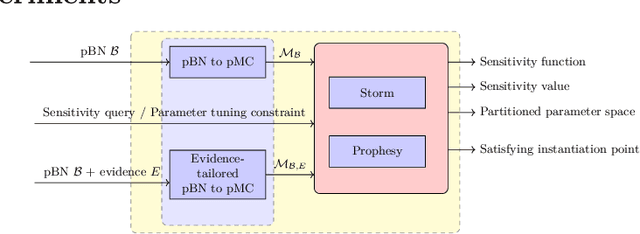

Abstract:This paper proposes various new analysis techniques for Bayes networks in which conditional probability tables (CPTs) may contain symbolic variables. The key idea is to exploit scalable and powerful techniques for synthesis problems in parametric Markov chains. Our techniques are applicable to arbitrarily many, possibly dependent parameters that may occur in various CPTs. This lifts the severe restrictions on parameters, e.g., by restricting the number of parametrized CPTs to one or two, or by avoiding parameter dependencies between several CPTs, in existing works for parametric Bayes networks (pBNs). We describe how our techniques can be used for various pBN synthesis problems studied in the literature such as computing sensitivity functions (and values), simple and difference parameter tuning, ratio parameter tuning, and minimal change tuning. Experiments on several benchmarks show that our prototypical tool built on top of the probabilistic model checker Storm can handle several hundreds of parameters.
Bayesian Inference by Symbolic Model Checking
Jul 29, 2020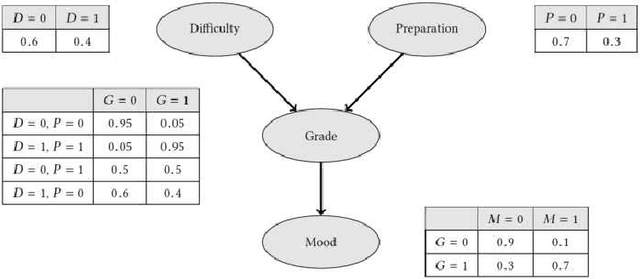
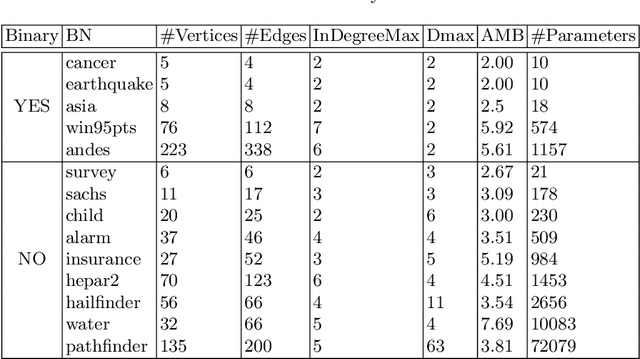
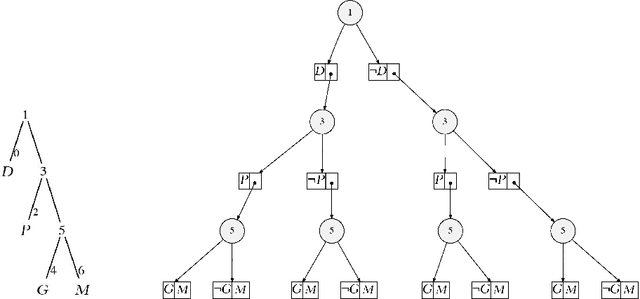
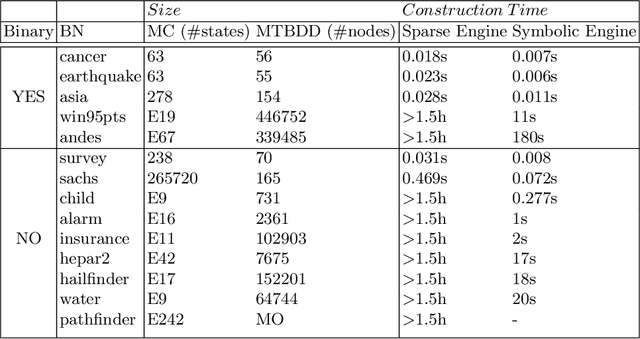
Abstract:This paper applies probabilistic model checking techniques for discrete Markov chains to inference in Bayesian networks. We present a simple translation from Bayesian networks into tree-like Markov chains such that inference can be reduced to computing reachability probabilities. Using a prototypical implementation on top of the Storm model checker, we show that symbolic data structures such as multi-terminal BDDs (MTBDDs) are very effective to perform inference on large Bayesian network benchmarks. We compare our result to inference using probabilistic sentential decision diagrams and vtrees, a scalable symbolic technique in AI inference tools.
 Add to Chrome
Add to Chrome Add to Firefox
Add to Firefox Add to Edge
Add to Edge